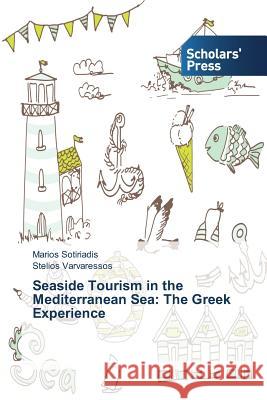Seaside Tourism in the Mediterranean Sea: The Greek Experience » książka
Seaside Tourism in the Mediterranean Sea: The Greek Experience
ISBN-13: 9783639667776 / Angielski / Miękka / 2014 / 80 str.
Seaside leisure holidays are the most common form of tourism in the Mediterranean basin. All Mediterranean countries adopted and implemented more or less the same model of tourism development based on 4Ss (sea, sun, sand and sex). The main purpose of this study is to critically analyse the experience of this type of development of seaside leisure tourism in Greece in order to draw some useful lessons for other countries and tourism destinations. To address this aim, the study adopts the approach of strategic analysis. This approach illustrates the importance of tourism as an economic activity and analyses the current situation and structural problems of Greece as a tourism destination. Although Greece has a wonderful range of heritage and natural resources, the lack of differentiation of the tourism offering as well as competitive disadvantages in the fields of governance, planning and marketing caused an over-dependence on tour operators. The study therefore assesses the Greek experience with the aim to identify the crucial issues and challenges. This evaluation allows taking some lessons from the Greek experience in order to benefit other destinations willing to develop tourism
Seaside leisure holidays are the most common form of tourism in the Mediterranean basin. All Mediterranean countries adopted and implemented more or less the same model of tourism development based on 4Ss (sea, sun, sand and sex). The main purpose of this study is to critically analyse the experience of this type of development of seaside leisure tourism in Greece in order to draw some useful lessons for other countries and tourism destinations. To address this aim, the study adopts the approach of strategic analysis. This approach illustrates the importance of tourism as an economic activity and analyses the current situation and structural problems of Greece as a tourism destination. Although Greece has a wonderful range of heritage and natural resources, the lack of differentiation of the tourism offering as well as competitive disadvantages in the fields of governance, planning and marketing caused an over-dependence on tour operators. The study therefore assesses the Greek experience with the aim to identify the crucial issues and challenges. This evaluation allows taking some lessons from the Greek experience in order to benefit other destinations willing to develop tourism











